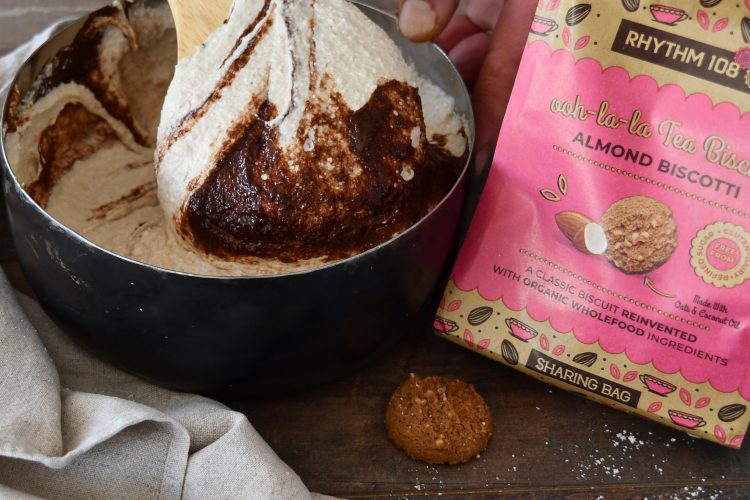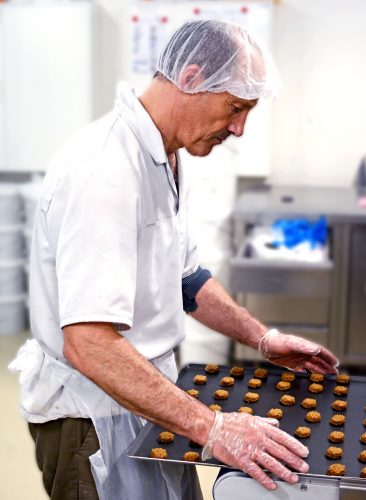10 actions to protect your business
- Like
- Digg
- Del
- Tumblr
- VKontakte
- Buffer
- Love This
- Odnoklassniki
- Meneame
- Blogger
- Amazon
- Yahoo Mail
- Gmail
- AOL
- Newsvine
- HackerNews
- Evernote
- MySpace
- Mail.ru
- Viadeo
- Line
- Comments
- Yummly
- SMS
- Viber
- Telegram
- Subscribe
- Skype
- Facebook Messenger
- Kakao
- LiveJournal
- Yammer
- Edgar
- Fintel
- Mix
- Instapaper
- Copy Link
Posted: 20 April 2020 | Siddhi Mehta | No comments yet
Siddhi Mehta, founder of the Swiss patisserie, Rhythm 108, outlines the actions it is taking during the pandemic to survive as a business.


As in any crisis, our actions today will determine not only if we exist tomorrow, but who we become. As someone who is making decisions fast, but not taking them lightly, I thought I’d share the 10 things we, at Rhythm 108, are doing at the moment. Hopefully it will help anyone who feels uncertain right now.
We believe these actions can be divided into three parts:
- Survive (short-term)
- Strengthen (long-term)
- Build to last
Survive
- Protect your employees
On 10 March 2020, I asked the team to prepare to work from home. For the seven of us essential to production, we agreed to work in a closed environment to limit the risk (self-isolate apart from coming to work – including the drive over). Anyone that felt unsafe was told to let us know – importantly, there will be no unfair consequences as a result of someone expressing concern.
Why do this before it was mandated? Simply because the health of our team is our responsibility. In today’s modern world, apart from essential production, we can do almost 90 percent of what we do from home.
- Cash is king/queen
We cleaned up receivables. In our hunt for growth in the last two years, we never had credit limits for any of our accounts; we are finally putting them in. Unfortunately, not everyone will survive the crisis – and we cannot become collateral damage. It will be important.
- Control stock and supply chain
Before the crisis we were dealing with a host of ‘out of stock’ issues, which meant we were keeping 12-16 weeks of finished stock. We are unsure how much sales will slow down in the next few weeks, so we are cutting it down to four weeks to be more agile. We have also found backup suppliers in case we have disruptions.
- Scenario plan
We looked at budgets and scenario-planned three outcomes. All three situations showed that some projects would have to be postponed. We decided to delay a few projects that in total would have cost us £50,000.
Strengthen
- Build trust with existing customers
We are talking to our customers about business continuity. They need to know that we are not going anywhere – this crisis will not eliminate us. What can we do to help? (In some cases, this has been an art not a science. We won’t do anything at the expense of the safety of our employees or makes our financial position riskier).
- Look at gross margins
We are Swiss-based and every time we make operational efficiencies, they get eliminated through currency exchanges because the Swiss Franc is strengthening. But the bottom line


- Use the downtime to improve processes
When you are moving at lightspeed you lack processes…we certainly did. Partly this was due to failure of leadership, but also inexperience – these are unprecedented times. Now is the time to clean house. For example, stop negotiating one-sided contracts with customers just for growth; stop accepting unreasonably long payment terms because it is what people do. We have used the last two weeks to implement a marketing campaign process so we can turn around a new campaign in a day and more importantly, measure its success when completed.
We are in process of creating an MIS report to track our financial health: is every pound invested generating more? These are things I have been attempting to implement over the last two years, which we are somehow now getting done.
- Prioritise projects that will give you long-term competitive advantages
In the world post COVID-19 – and it will be a new world – I believe consumers will buy differently. Employees will choose jobs differently. What projects will help us strengthen our position when this is over? In our case, we will spend money on improving our brand message and design. We will also still invest in recyclable packaging because it is the right thing to do.
Build to last
Be a phoenix, not a unicorn. This refers to Reid Hoffman’s episode in Masters of Scale (a business podcast that I can recommend), where he interviews companies that have survived world wars, economic crises and technological revolutions. Unicorns come and go, but a phoenix rises from the ashes every time. We are hoping to be agile enough to last through many more ups and downs.
- Do it for the community
Your customers are your community – and some of them need help now. Our team is looking for charities they care about on a personal level. We want to be helping others during this crisis because in normal times we exist due to the support of this community.
- Question your core proposition as the world shifts. Double down or change, but do so with your core values intact
Ask yourself: ‘what do we provide to our customers, our community, and how?’ We still make exceptional product through innovation, and that remains relevant. We do so with ethics at the forefront, and that too, is still relevant. But how will customers buying habits change? Do we need bulk formats? Do we need to be better placed online? Can we survive in our niche, or do we need to play in different categories? I sadly do not have the answers, but these are all questions we are asking seriously within our team. I hope this helps you.
Have you got any ideas to share in this time of trouble? Comment below: collaboration and support will help get us through this.
About the author
Siddh Mehta is the founder of Rhythm 108, a company which creates plant-based treats with organic ingredients. Following years in the city working for a global management consulting firm, Siddh and her husband moved to the Swiss Alps. This experience and appreciation of Swiss craftsmanship, coupled with a different pace of life, led to the creation of Rhythm 108 which is now available in over 5,000 retail points across Europe. Outside work Siddh loves to ski, cook and make furniture. Siddhi has been named as one of Management Today’s 35 under 35 Women.








